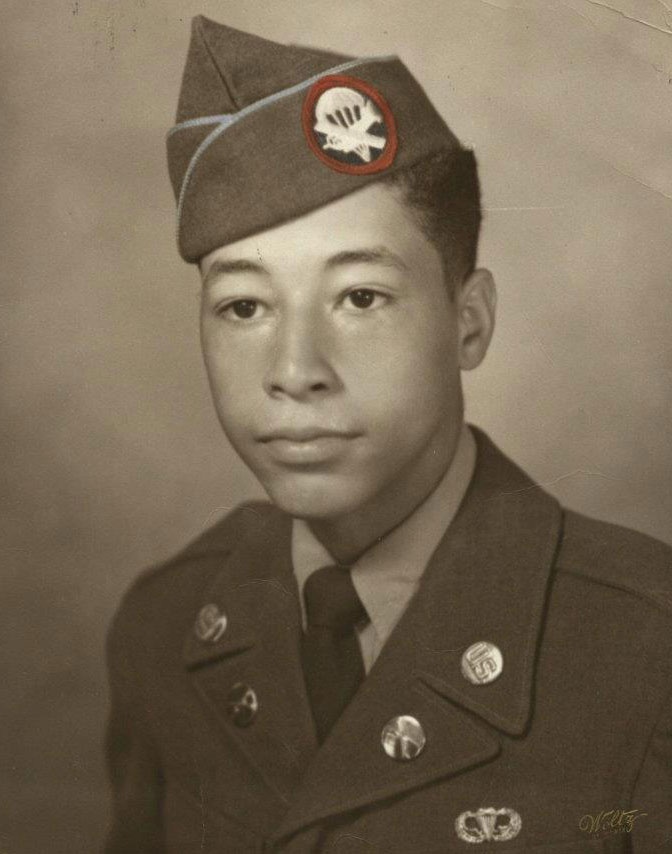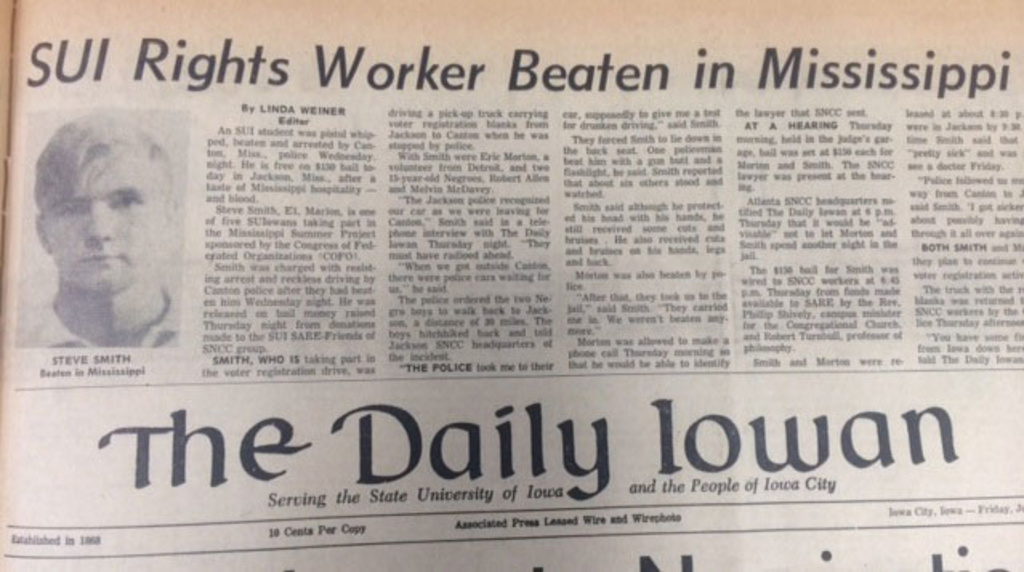Ask Old Gold—or any archivist or special collections librarian—how collections happen to arrive at their repository, and chances are you’ll hear a wide range of stories. You might learn of an alumna with special ties to the university, for example, or of a donor with a particularly strong interest in a subject that the repository’s collections focus upon, such as science fiction fanzines or cookbooks. (Yes, our department has amazing collections in those fields.)
And then there are the collections that arrive here because of friendship.

Eric Morton was a 30-year-old civil rights activist when he traveled to Mississippi in 1964 to participate in Freedom Summer, an effort to register African-Americans in Mississippi to vote. At the time, less than 10 percent of the state’s eligible black voters were registered, a consequence of racism: Jim Crow laws, physical violence, intimidation, harassment. Mississippi was ranked at the bottom in terms of U.S. black voter participation and so was targeted for the campaign.
Morton was already a veteran of the civil rights movement when he was named materials coordinator for the 1964 project by leadership of the Student Nonviolent Coordinating Committee, one of several organizations that helped facilitate Freedom Summer. He joined SNCC staff at its Atlanta headquarters two years earlier, in 1962. As an African-American, a native of Detroit, and a veteran of the U.S. Army, Morton experienced firsthand racial discrimination and had vowed to combat it.
During Freedom Summer, Morton worked with dozens of volunteers from across the country, including many white college students. A contingent of about 10 students from the State University of Iowa participated, including 19-year-old sophomore Steve Smith (1944–2009), of Marion, Iowa [see also: Steve Smith, following his conscience]. On the night of July 15, 1964, while delivering voter registration materials from Jackson to another area of the state, the two men were stopped by authorities, detained, and beaten at the roadside. They were jailed in nearby Canton and released on bail about two days later.
Read more Old Gold columns in Iowa Now.
The incident is recounted by Morton in a signed affidavit he filed with the U.S. Commission on Civil Rights and published in a book, Mississippi Black Paper (Random House, 1965), copies of which are widely available, including at the UI Main Library.
The violence of that terrible night scarred the young men’s lives, but it also motivated Morton to continue his devotion to activism. Following SNCC, he worked in the political arena, helping to elect such prominent black officials as Coleman Young as mayor of Detroit, and Ron Dellums and John Conyers to the U.S. House of Representatives. He also worked as an international organizer for the American Federation of State, County, and Municipal Employees (AFSCME). After obtaining his doctorate in philosophy, he became an associate professor of philosophy at Fort Valley State University, in Georgia.
Old Gold began to correspond with Morton in 2013 after learning of his work in Mississippi. A frequent speaker on the history of the civil rights movement, Morton said he often recalled that night for his audiences when recounting the risks that many people took in the struggle to overcome discrimination, noting the bravery of those such as Steve Smith.
In 2014, Old Gold met Morton at his home in Richmond, California, to learn more of his life and his work. During our visit, Morton offered his papers to Old Gold, a collection that documents his work with SNCC and in later years. The materials include rare tape-recorded interviews conducted in 1963 and 1964 with emerging civil rights leaders such as Stokely Carmichael, Fannie Lou Hamer, and Charles Cobb.
Why would his papers be transferred to the UI Libraries? Though Morton had never been to Iowa, nor had he received a degree here, he said his friendship with Steve Smith was an important bond at a time of great challenge. His feeling of kinship with the 19-year-old college student from Marion was strong, he said, and he wanted his papers to be housed alongside Smith’s. Today, both collections reside in UI Libraries’ Department of Special Collections, where students of the civil rights movement may consult them for research.
Old Gold sadly notes that Eric Morton died in Oakland, California, on Oct. 7, 2015, following a lengthy illness. He was surrounded by his family, including his wonderful and remarkable wife, Virgie. Old Gold is grateful for such powerful, generous friendship, making possible the record of one who worked tirelessly toward a better world.
